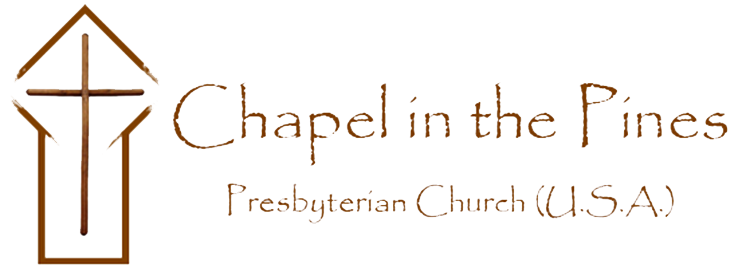Caring for Creation

A Call to Covenant with God
for the
Care of the Environment
Extended to the Congregation of
Chapel in the Pines Presbyterian Church
By the Seekers’ Class (2009)
Members of the Seekers’
Class of the Chapel in the Pines Presbyterian Church have completed an in-depth
study of the ecological crisis facing the world today, a study based on the
Scriptures. After careful consideration of their own need to make a
re-commitment to address environmental needs, they invite the congregation to
join them in making a re-commitment to answer God’s call to care for the
environment. It is in this context that we extend a Call to Covenant.
We realize that
environmental care encompasses a vast array of issues and responsibilities:
care of the earth, air, sea, and sky; care for our bodies; care for the poor,
the hungry, the homeless and displaced; care for the animals; and many more.
We earnestly believe that
God has given us the land as a gift, a gift freely and lovingly bestowed. We
are called to be keepers and stewards of the environment rather than
manipulators and managers.
We entreat the congregation
to help answer the call, a Call to Covenant with God to accept the
responsibility to re-think its responsibilities to the environment.
The possibilities are many,
therefore we submit a list of things we begin to consider as individuals and as
a congregation:
- Organize an Outreach
sub-committee on Eco-Stewardship. - Serve on the Eco-Stewardship
Committee. - Continue to study/consider
ways to fulfill an environmental responsibility in the new church development. - Support Chatham County’s programs dealing with Obesity, Disease Prevention, Healthy Eating,
and Exercise Programs. - Support the Food Bank with
an even greater zeal. - Consider the need to
recycle, even in such small ways as in recycling our waste after refreshments
and luncheons. - Add your ideas and creative
thinking about ways to serve.
As we have stated, this is a
beginning. The Seekers’ Class re-states its invitation to the congregation for
a Call to Covenant with God in preservation of the environment.
Environmental Stewardship Task Force
(Approved by Session August 2012)
Waste Reduction
- Recycle paper, plastic, metal, cardboard, glass, toner cartridges, electronics
- Limit number of bulletins printed; obtain average attendance to project number of copies needed
- Use electronic correspondence when possible
- Minimize paper usage by making double-sided copies or printing two sheets to a page when possible
- Use refillable pens vs. disposable pens
- Use recycled-content paper products
- Purchase items with limited packaging
- Use toilet paper with 100% recycled content
- Use cloth towels, dish rags and napkins or buy recycled-content, unbleached napkins and paper towels
- Eliminate the use of disposable cups, plates, silverware, serving dishes, food storage containers Glass is preferred over plastic, especially non-recyclable plastic
- Use beverage pitchers vs. plastic-bottled items
- Compost yard waste, appropriate kitchen scraps and paper
Energy Conservation
- Conduct an energy audit
- Organize car pooling
- Establish procedures for turning off lights, office equipment, coffee machine, etc
- Program computers to "sleep" when they’re idle for 15 minutes or more
- Consolidate shopping trips
- Set thermostat(s) at lowest and highest comfortable temperature for heating and cooling
- Use compact florescent bulbs in all non-dimming fixtures
- Investigate window film on south facing windows to reduce cooling costs and fading of furniture and flooring
- Buy products made/manufactured locally when possible
- Site deciduous trees to provide shade to Sanctuary and AC system
- Maintain heating/cooling unit regularly
- Change HVAC filters every 3 months
- Set hot water heater to 120 degrees
Water Conservation
- Use aerators on faucets
- Run dishwasher only when full. Minimize pre-rinsing of dishes.
- Xeriscape – use natives and indigenous species and plant for drought resistance
- Reduce or replace grass with appropriate sustainable alternative groundcover
- Conserve water, design for sustainable irrigation using rain barrels and soaker hoses
- Possible use of cisterns for water collection/storage
Reduction of Toxic Substances
- Use phosphate-free, biodegradable detergents, soaps, cleaning supplies. If these products do not perform adequately, attempt least harmful product.
- Reduce the use of colored paper
- Use unbleached coffee filters
- Use chlorine-free paper
- Use non-toxic fertilizers, pesticides, herbicides
- Consider engaging a landscape maintenance company that uses organic/sustainable practices
- Low/No VOC paints and finishes when surfaces need to be repainted/stained.
- Have water tested for coli forms as well as heavy metals if not already done
- Consider need for filtering water used for cooking and drinking
- Dispose of hazardous materials appropriately
Sustainability
- Purchase Eco-Palms for Palm Sunday
- Purchase sustainably-forested wood products, including pencils
- Create a wildlife habitat/pollinator garden
